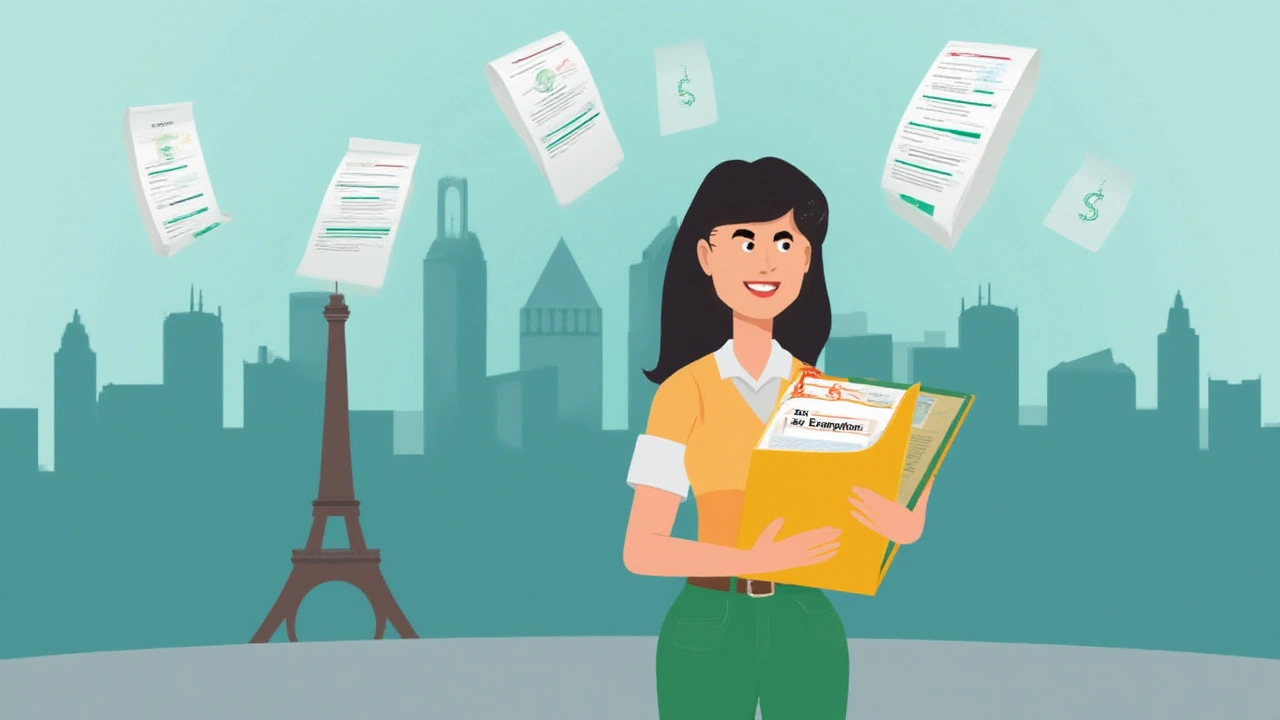Picture this: your friend sets up a charitable trust hoping to do good and help people. But then, out of nowhere, the tax question hits. Does a charitable trust actually have to pay taxes? For most people in Auckland, or anywhere in New Zealand really, it feels a bit confusing. Some assume every cent goes straight to the cause, no questions asked. Others guess the government grabs a slice no matter what. The truth? It’s not as simple as yes or no.
Here’s where things get interesting: New Zealand's system gives big advantages to true charities, but there are strict rules. If you miss one, even by accident, your trust could suddenly face a surprising tax bill. Dylan and I know a couple who set up a trust thinking they were tax-free, only to scramble when an accountant pointed out they'd missed an important registration. It happens more than you’d think. There are layers—official registrations, tricky bits about what counts as charitable, and even GST can come into play. Want to avoid headaches? Let’s get the facts straight, one step at a time.
How Charitable Trusts Work in New Zealand
Charitable trusts in New Zealand have a pretty unique status—but it’s not automatic. You can’t just say “I’m a charity” and expect the tax man to wave you through. Here, it all starts with intent. The trust must exist for exclusively charitable purposes: relief of poverty, advancement of education, promotion of religion, or sometimes, things that benefit the community (think healthcare, environmental protection, or sports programs for underprivileged kids).
Registration comes next. If you’re hoping to lock in tax-exempt status, your trust must register under the Charities Act 2005. This is managed by Charities Services, part of New Zealand’s Department of Internal Affairs. The registration process looks at everything: your trust deed, your activities, where your money goes, and whether your trustees are behaving (no “private benefits” allowed—that’s legalese for, “You can’t use the trust’s money to upgrade someone’s kitchen or pay your cousin’s rent”).
If you miss this step, the rules are clear: your trust is treated like any other business for tax purposes. That means paying income tax on any profit. True story—according to Charities Services, more than 28,000 charities are registered, but dozens every year lose that status (usually for paperwork slip-ups, rule breaches, or not submitting annual returns). Lose registration, lose tax benefits. It’s pretty cut and dried.
Registered charitable trusts don’t pay income tax on funds used for their charitable goals. But, and this is a big but, not everything is tax-free. If the trust earns overseas income, it might not be covered. If it owns a business or investment property, there are special rules. Even raffle tickets for charity can attract tax if not handled correctly.
Another fact: GST (Goods and Services Tax) can sneak up on even the most well-meaning groups. If a trust’s turnover is over $60,000 a year, that trust needs to register for GST—just like any other organization.
People are often shocked by how strict the “charitable purpose” test really is. If your trust holds a cycling race just for the sake of a fun weekend, not to support a specific community benefit or cause, the tax exemption may not apply. Trusts must show benefit that’s public, not private or limited to a small closed group.
Here’s a practical tip: Charities Services has an online tool—you can check whether a trust is registered and what its main purposes are. It’s actually kind of fun to poke around and see just how many random things people register as a “charity.”
If you’re thinking about profits, take a minute to look at actual numbers. According to 2024 data from Charities Services, the average registered charity in New Zealand earns around $820,000 a year. Schools and religious groups earn a lot more, but hundreds of small charities run on less than $10,000. Tax obligations matter even for the tiny ones!

Tax Exemptions, Obligations, and Surprises
So what do you actually have to do, tax-wise, once the trust is up and running? The official answer from Inland Revenue (IRD) is detailed but not impossible to follow—if you’re careful.
Here’s the short version: If a charitable trust is registered and sticks to its charitable purpose, most income is exempt from income tax. That covers donations, grants, most investment income, and bequests. But if the trust dabbles in business or earns income unrelated to its charitable aim, tax might pop up. Let's say a charity opens a bakery, with all proceeds going to its cause. Is the bakery income tax free? Maybe, maybe not—the trust has to show the bakery exists primarily to further its charitable purposes, not just to make money.
Have a look at this table—it covers key tax responsibilities for registered and unregistered trusts:
| Trust Type | Registration Needed | Income Tax | GST |
|---|---|---|---|
| Registered Charitable Trust | Yes | Exempt (if used for charity) | Must register if turnover exceeds $60,000 |
| Unregistered Trust | No | 15% - 33% (normal business rates) | Must register if turnover exceeds $60,000 |
| Registered, but Non-Charitable Activities | Yes | Tax on non-charity income | Must register if turnover exceeds $60,000 |
Here’s where things twist: charitable trusts can claim back GST on goods and services they buy (“input tax credits”), as long as those expenses relate directly to their charitable objectives. This means it’s crucial to track income and expenses properly. It’s not only about avoiding tax bills—if a trust isn’t careful, it can even end up owing GST unexpectedly, which can hurt a small volunteer group’s finances. I’ve seen this catch people off guard more than once, usually when a trust receives a big grant and the GST portion is forgotten.
Payroll tax (PAYE) still applies if the trust hires employees or pays contractors. If you’re paying a manager to oversee a homeless shelter project, IRD wants payroll tax just as they would for any business job.
What about odd fundraising situations? In my book club, someone once asked if running a charity trivia night at the local pub means paying entertainment or gaming taxes. The answer, surprisingly, can be yes. If there are prizes or public ticket sales, trusts sometimes need to meet Department of Internal Affairs rules as well as tax rules.
One odd loophole people talk about a lot: «If a trust distributes money overseas, like supporting a school in Fiji, does the tax exemption disappear?» Actually, New Zealand’s rules allow some overseas activity, but only if the majority of work still helps folks in New Zealand. Otherwise, it’s risky business—and your *charitable trust* could lose its status if IRD thinks too much money is leaving the country.
Here’s a number people usually guess wrong: According to IRD stats, over $1.5 billion in donations get claimed every year in New Zealand (as of 2023 tax filings), by both individuals and companies. Donors get a tax credit for gifts to registered charities, but if the charity isn’t officially recognized, no credit—and the trust itself may have to pay income tax.
Some quick tips for avoiding trouble:
- Keep great records. Every donation, every receipt, every spends. It’s not optional.
- Consult an accountant who specializes in charities to review the trust deed before registration.
- If your trust’s activities change, tell Charities Services and IRD fast. Don’t assume what worked in 2022 is still fine in 2025.
- File returns on time every year, even if you think there’s nothing new to report.
- If in doubt, ask for a private ruling from IRD about any tricky tax situation.

What Happens If Things Go Wrong?
Everyone wants their charity to do good, but mistakes happen. It’s easy to slip up if you’re juggling paperwork, fundraising, and volunteers. If a charitable trust fails to meet the rules, IRD doesn’t go easy. I've seen cases where a trust forgot to file its annual return or mixed up private benefit rules (like paying a committee member’s car bills). IRD can deregister the trust or assess years’ worth of back taxes, plus penalties and interest. It gets costly fast—one Auckland community trust had to pay over $65,000 in missed income tax after spending charity money on board holidays. Painful, and totally avoidable.
What if the trust genuinely messes up, but it’s an honest mistake? IRD sometimes allows amendments or corrections, especially if the trust comes forward first. But repeated mistakes, or anything that looks intentional? That’s a quick route to deregistration, fines, and reputational harm. Trusts can also get in trouble if they accept “tainted” donations—funds linked to crime or money laundering—so always check where your money’s from.
There are stories of inspiring comebacks, though. Take the Kaipatiki Project, a North Shore charity focused on environmental restoration. They were flagged by IRD for possible unrelated business income. Instead of panicking, the team worked closely with Charities Services, revamped their accounting, and kept their charitable status.
If you’re worried about complex finances, use technology to your advantage. Loads of software (even free stuff like Xero’s community version) makes reconciling donations and grants with actual spending much easier. Many Auckland community houses now use cloud accounting so every trustee has instant updates. Transparency is a friend, not a foe, when it comes to tax.
It’s worth noting that losing charitable status can hurt beyond tax: donors lose their tax credits, trust branding loses credibility, and future funding becomes much harder. For international readers? These rules aren’t unique to New Zealand. Most countries have their own versions, but the principles—“register properly, use money as promised, keep squeaky-clean records”—are pretty universal.
So, does a charitable trust pay taxes? The short answer: A properly registered charitable trust does not pay income tax on money used for genuine charitable purposes, but there are lots of cases where tax can sneak back in. Stay registered, follow the rules, keep records, and you’ll stay on the right side of the law. If the trust misses something, IRD is only a letter or email away—best to talk to them early, before a tax bill arrives. Nobody sets up a charity hoping for a tax audit, but a bit of planning means more money goes where it should: helping people, not the government’s piggy bank.








